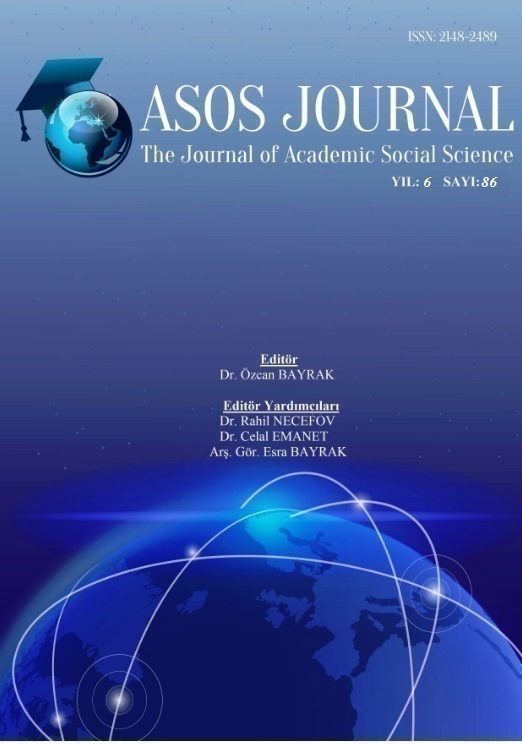FİZİK EĞİTİMİNDE ELEKTRİK VE MANYETİZMA KONULARININ ÖĞRETİMİNDE KULLANILAN MODEL VE BENZETMELERİN TESPİTİ ÜZERİNE BİR DEĞERLENDİRME
Author :
Abstract
Bu çalışmada fizik öğretmenlerinin Elektrik ve Manyetizma ünitesinde, öğrencilerin anlamada zorluk çektikleri kavramları anlatırken kullandıkları model ve benzetmeler ile Milli Eğitim Bakanlığı’na bağlı okullarda okutulan 9.sınıf Fizik ders kitabında (Ortaöğretim 9. sınıf Fizik) yer alan “Elektrik ve Manyetizma” ünitesindeki model ve benzetmelerin tespiti amaçlanmıştır. Bu amaçla Zonguldak ilinde görev yapan fizik öğretmenlerinden 25 kişilik bir çalışma grubu oluşturulmuştur. Çalışmada öncelikle Milli Eğitim Bakanlığı’na bağlı okullarda okutulan 9.sınıf fizik ders kitabında yer alan model ve benzetme örnekleri tespit edilmiş, ardından araştırmacı tarafından hazırlanmış olan görüşme soruları kullanılarak öğretmenlerin derslerinde kullandıkları model ve benzetme örnekleri belirlenmiştir. Son olarak da Fizik öğretmenleri ile yapılan görüşmelerde belirlenmiş olan model ve benzetmeler ile 9.sınıf fizik ders kitabının Elektrik ve Manyetizma ünitesinde yer alan model ve benzetme örnekleri karşılaştırılmıştır. Araştırma sonucunda, Milli Eğitim Bakanlığı’na bağlı okullarda okutulan 9.sınıf fizik ders kitabındaki Elektrik ve Manyetizma ünitesinde kullanılan model ve benzetme örneklerinin yetersiz olduğu, fizik öğretmenlerinin bazı konularda model ve benzetmeye ihtiyaç duymadıkları ve bazı konularda ise ihtiyaç duysallarda uygun model ve benzetme örnekleri bulmadıkları için kullanamadıkları tespit edilmiştir. Bu nedenle fizik öğretmenlerinin model ve benzetme bulamama problemlerini gidermek için ders kitaplarında yeterince model-benzetme örneklerine yer verilmesi ve öğretmenlerin anlaşılması güç ve soyut kavramlar içeren konuların anlatımında model ve benzetmelerden daha fazla faydalanması gerektiği sonucuna ulaşılmıştır
Keywords
Abstract
In this study, it is aimed to determine the model-analogy in the unit of “Electricity and Electricity” that is by the Physics teachers while expressing the concepts students have difficulty in understanding and the model-analogy that is given in the unit of “Electricity & Magnetism” of the Physics Course Book of 9th grade that is studied in schools connected to the Ministry National Education for this aim, a 25-people working group, consisting of the physics teachers working in Zonguldak, is formed. In the study, first the model-analogy samples that is given in the unit of “Electricity and Magnetism” of the Physics Course Book of 9th grade that is studied in schools connected to the Ministry of National Education and then by using the interview questions prepared by the researcher the model-analogy used by the teachers during their lessons is determined. Finally, the model-analogy found by means of the interviews with Physics teachers and the model-analogy in the unit of “Electricity & Magnetism” of the Physics Course Book 9th grade are compared. As a result of the study the model-analogy in the “Electricity and Magnetism” unit of the Physics Course Book of 9th grade that is studied in schools connected to Ministry National Education was found to be inadequate and also while for some topics Physics teachers didn’t need any model-analogy, for some topics they couldn’t find and use any model-analogy samples even if they needed. For this reason, we reached the final conclusion that, to solve the problem of not having enough model-analogy samples for the Physics teachers an adequate amount of model-analogy samples should be included to the course books and also the Physics teachers should make use of more model-analogy samples while explaining the concepts hard to understand and the abstract concepts during the lesson





